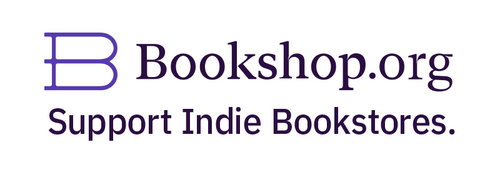
When cancer complicates body image and parenting
My bald head was covered with a baseball cap. I was out with no makeup to cover my chemo-grayed complexion as I pushed my baby girl on the swing.
She giggled and squealed, catching the attention of a young man passing by.
“She has a beautiful laugh,” he said. “Are you her grand… parent?” He stumbled over grandparent as we both realized that, not only had he grossly overestimated my age, he had no idea whether I was a man or a woman.
That wasn’t my low point.

The real punch to the gut came a few years later when I was getting my little girl ready for a bath and she casually asked me how old she will be when they cut off her nipples. No tears, no fear, just matter-of-fact assumption that somewhere along the line, her breasts get hacked off.
I felt like my body betrayed me
Cancer didn’t just take my health, it also made off with my breasts, hair, femininity, strength, and a good deal of my confidence. I felt like my body betrayed me. And now, in this hypothetical but not unlikely scenario, my daughter’s body would someday betray her as well.
I helped her into the tub and watched her pretend to be a mermaid. Her movements are fluid and unfettered by notions of shame or inadequacy. Her future is wide open – she can be and do anything, but at this early age, my life is her template.
I knew, sitting there on that bathroom floor, that I needed to wrap my head around this cancer and my body image before my issues became her issues. But first, I had to answer this big question from the little girl in the water.
“Not everyone gets cancer,” I told her. “I hope you don’t, but you might. It will be 34 years before you are the age I was when I got cancer, and that’s lots of time for someone to invent a cure or even a way to prevent it.”
By the time I finished those three sentences, the tub was full of toys and Poseidon was mediating a battle between a narwhal and a walrus. She had moved on and wasn’t listening, but I was stuck in my head trying to define what a healthy body image means, how to make that a reality in my life, how to convey that to my daughter, and how cancer complicates everything.

My body image issues started long before cancer.
At seventeen I was touring Washington D.C. with a group of 200 high school students from around the country. As we walked through the Mall, I overheard two of the other students discussing my appearance. “Judy’s legs are so ugly,” one of the guys said.
“Give her a break, she just got out of the hospital,” the other replied. (No, my health issues did not start with cancer.)
A small part of my brain acknowledged that the second student had jumped to my defense. Thank you, by the way. A much larger part of my brain registered that HE DID NOT DISAGREE with the first student’s assessment of my legs.
In the court of high school social politics, the issue of the ugliness of my legs was raised, and swiftly seconded. That was all I needed. The verdict stuck with me, and I kept my legs covered with tights or long pants for nearly two decades.
Even today, in my mid-forties, each time I leave the house in shorts or a skirt without tights, it is an act of courage that requires a deep breath before stepping through the door.

Why do they have so much impact?
I can’t remember their names. I would not be able to pick them out from a police lineup. I have not seen those boys (men, now) since 1987, and I bear them no ill will. Why do they have so much impact over the way I prepare to leave the house most sunny summer mornings?
It’s not even about them. It’s about me, and my willingness to cling to the derogatory comments and ignore the many more flattering comments I’ve received over the years. A large part of this is about me devaluing my own needs and comfort, and assuming that I owe the world something that I don’t.
After my first mastectomy, I agonized each time before going to the gym.
Sweat made the prosthetic breast slip around, and even fall out of my clothes. Yeah, that was embarrassing. I could stuff my bra with socks and they’d stay a little better, but as I pumped my arms on the treadmill, they’d pile up in the middle of my chest, making me look more Picasso than if I’d just shown up single-breasted.
It was all so inconvenient and awkward, and I contemplated not returning to the gym.
To what extent am I obliged to present myself as a double breasted woman?
Is it offensive to the other people if I show up with one breast?
I struggled with this question. I lost sleep over it. I imagined people who’d had arms or limbs amputated; I wouldn’t expect them to wear a prosthesis if they didn’t want to. Why did I apply a different standard to myself with an amputated breast? And then, I worked up the courage and took a deep breath before stepping through the door single-breasted.
Nobody noticed.

Motivational posters
I noticed a motivational poster hanging in the gym showing a woman drenched in sweat with the words, “If you look good working out, you’re doing it wrong.” Ha! Despite the fact that I know women who do kick ass while looking amazing, there is a great deal of truth to that poster.
Why had I not seen that before?

My body is a work in progress.
I don’t need a perfect body to have a healthy body image. My thoughts on body image are evolving, even as I write this. I am learning to accept and embrace both my vulnerability and my resilience – both integral parts of what it means to be alive.
I don’t lecture my little girl on these issues, although we talk about them as they come up.
I hope that she will see that ideas can evolve as people learn and grow just as our bodies do – that is also part of what it means to be alive.
Mostly, I put on shorts or a skirt with bare legs and go out side to play with her when it’s sunny. Sometimes, I even go through the door without noticing, and I’m out in the sun before I realize that I didn’t have to stop and brave up first.











